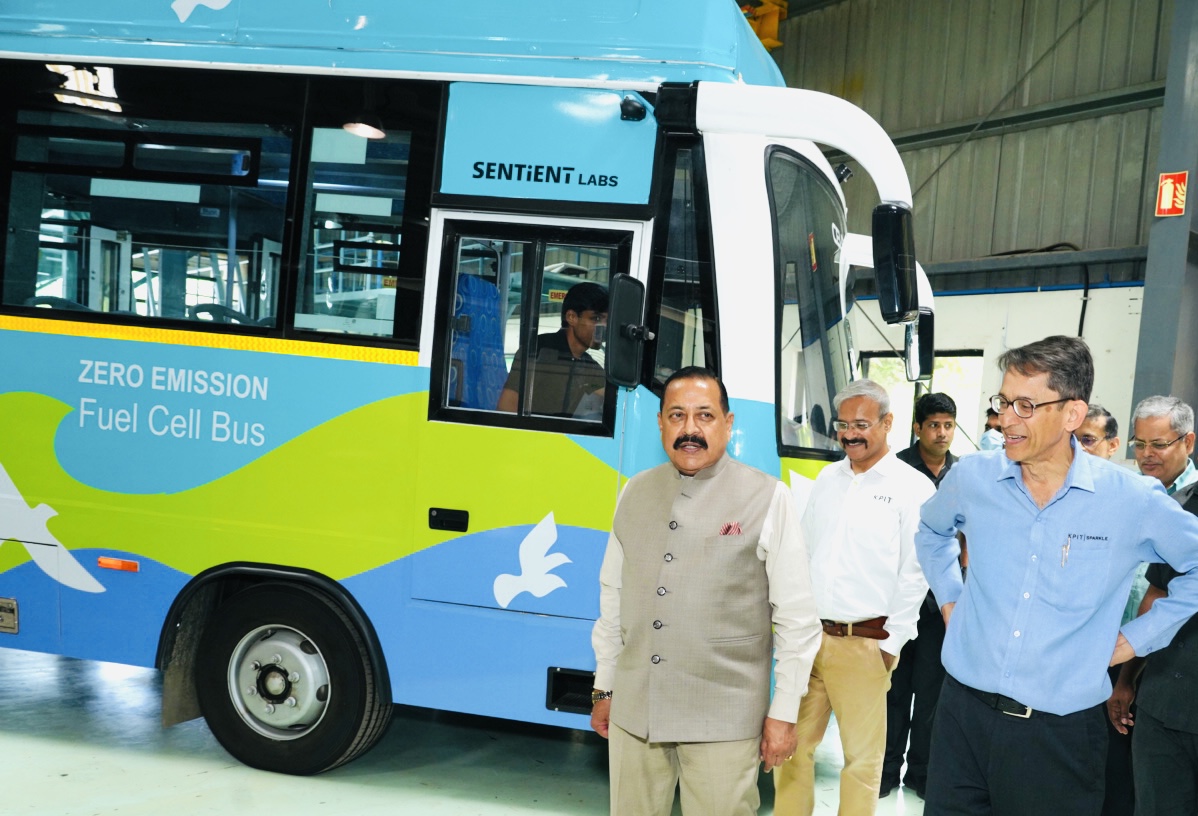India’s first indigenously developed Hydrogen Fuel Cell Bus
Union Minister Dr Jitendra Singh recently launched India’s first truly indigenously developed Hydrogen Fuel Cell Bus developed by KPIT-CSIR in Pune.
Key Points
- This bus has zero emissions compared to a diesel bus plying on long distance routes which usually emits 100 tonnes of CO2 annually.
- In terms of CO2 emissions, about 12-14 percent of CO2 emissions in India come from diesel-powered heavy vehicles. At the same time, hydrogen fuel cell vehicles will prove to be excellent means to eliminate on-road emissions in the region.
What is Hydrogen Fuel Cell Technology?
In HFC technology, a chemical reaction is made between hydrogen and oxygen to produce electrical energy. It does not use conventional fossil fuels such as petrol or gas. In its true sense, a fuel cell stack refers to batteries that generate electrical energy, which do not require much space to store.
The biggest feature of this fuel cell technology is that it emits only water, thus cutting down on emissions of harmful greenhouse gases along with other air pollutants. Therefore, this technology is probably the most eco-friendly mode of transport.
This technology also works at 65-75 degree Celsius temperature which can withstand the heat generated while driving.
Japan is a leader in the use of fuel cell technology. In the context of controlling air pollution, it is necessary that India learns from Japan’s technology for the use of clean energy.
PM Modi’s Hydrogen Vision
Prime Minister Modi’s hydrogen vision is an important step towards ensuring self-reliant and accessible clean energy for India, as well as meeting the goals of climate change. Green Hydrogen is an excellent clean energy vector which is fully capable of decarbonizing the refining industry, fertilizer industry, steel industry, cement industry and heavy commercial transport sector.
Month: Current Affairs - August, 2022
Category: Science & Technology Current Affairs


